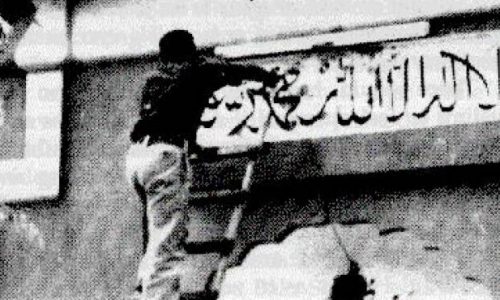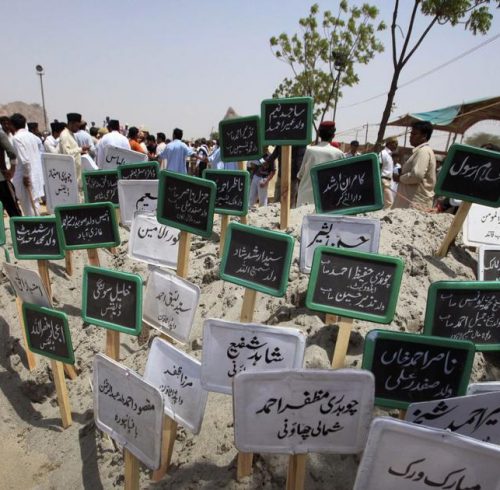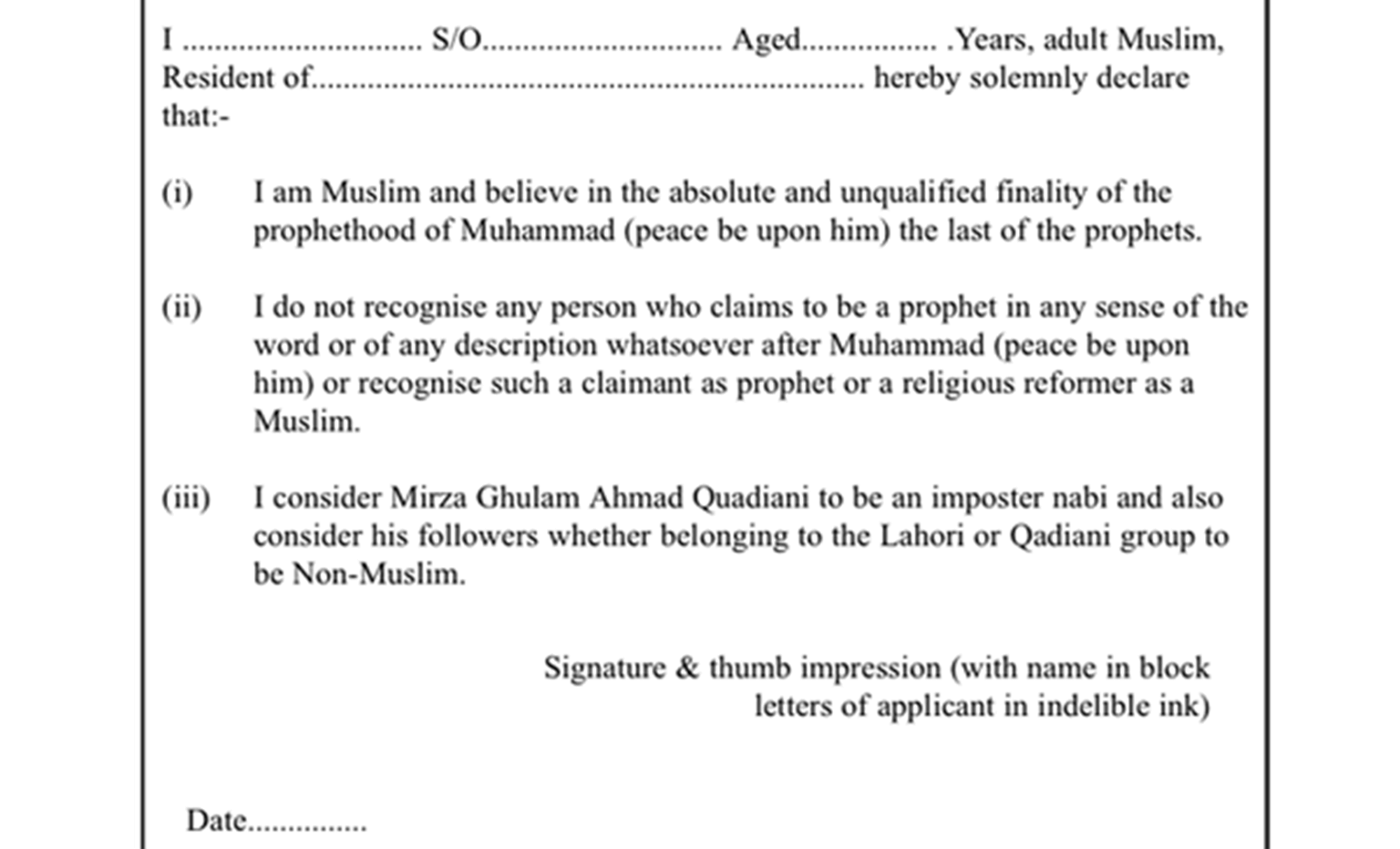Anti-Ahmadi Laws
The Issue
Ever since the Government of Pakistan has introduced anti-Ahmadi laws, Ahmadi Muslims have suffered severe discrimination and persecution from the state institutions.
The Second Amendment of the Pakistan Constitution and the Blasphemy laws targeting Ahmadis, provides the legal basis to do so. As a result the state and its institutions exercise arbitrary power to judge on religious status effectively classing Ahmadi Muslims as second class citizens.
Ahmadi Muslims, persecuted by the state machinery, are therefore and deprived of their rights for example to vote, to be educated, to get employed and promoted without discrimination.
The government and its institutions are therefore the lead players in the discrimination, hatred and persecution of Ahmadis. This has a trickle down effect in shaping the mindset of the public of Pakistan. Ultimately Ahmadi Muslims are disadvantaged, persecuted in all walks of life and in all institutions, especially those relating to education, employment and health.
Passport/ ID cards
The Pakistani passport contains a religious column, which was introduced in 1974 under the Second Amendment.
The Pakistani government forces its citizens to discriminate against Ahmadis when applying for a Passport or ID card.
Voting Rights
Ahmadi Muslims were denied voting rights in the national and local elections that took place in Pakistan in 2013. This was highlighted by the EU Election Observation Mission to Pakistan (2013).
Whilst other minorities have been removed from the separate electoral roll, this has not been the case for Ahmadi Muslims.
Form ‘A’ of Pakistan Election Commission for voter’s registration states that if a voter claims to be a Muslim, he or she must not be associated with the Qadiani (a derogatory name for Ahmadis) Group nor call him/herself an Ahmadi. As such, Ahmadi Muslims now remain the only disenfranchised group in Pakistan.
Education
There also remains a problem in schools and educational institutions where Ahmadis are routinely harassed and discriminated on the basis of faith. This has led to students being expelled, removed from classes and targeted for abuse based on their faith. Teachers are also targeted at universities and colleges.
In 2008, all Ahmadi students were expelled from a medical college in Faisalabad on basis of their faith. Four of the female students were in the final year of their studies.
Discrimination continued in Rawalpindi and Bahawalpur medical colleges. A local newspaper (Daily Jang) printed a headline: “We shall not allow admission in Rawalpindi Medical College of any student guilty of blasphemy.”
The Human Rights Commission of Pakistan acknowledging the sensitivity of this development, issued a “press release” on this. The Commission asserted: “It calls upon the provincial and federal governments both to intervene immediately to protect the wronged students and deal firmly with hate-preachers and disruptors of peace because much more than the career of Ahmadi students is at stake.”
Still, the government did not take any step to protect Ahmadi students, teachers and staff in educational institutions.
Professor Abdus Salam

A resolution tabled in 2018 by Captain Muhammad Safdar, called on the National Assembly to change the name of the Physics Department at the Quaid-i-Azam University (QAU) from the Professor Abdus Salam Centre for Physics to al-Khazini Department, after Byzantine-origin astronomer Abu al-Fath Abd al-Rahman Mansur al-Khazini.
Professor Abdus Salam – an Ahmadi Muslim – was Pakistan’s first ever Nobel Laureate. Having removed his name from some school textbooks, defiled his gravestone (to remove the word ‘Muslim’) – this is now a further attempt by the state to remove the existence of Professor Abdus Salam from Pakistan’s history simply because he was an Ahmadi Muslim.
Civil and Military Services
Ahmadis continue to suffer from societal harassment and discrimination. Even the rumour that someone may be an Ahmadi or have Ahmadi relatives can stifle opportunities for employment or promotion.
Discrimination and persecution of Ahmadis at workplaces are very common. There are also restrictions for Ahmadi from progressing to senior ranks in the Civil and Military Services.
In 2017 National Assembly Member Captain Safdar called for all Ahmadis to be removed from public service.
This was followed by a shocking Islamabad High Court judgement in March 2018, which called for a mandatory religious declaration when applying for a job with the civil service, the armed forces and the judiciary.
This raises further difficulties for Ahmadi Muslims as the declaration specifically targets the fundamental tenet of Ahmadi belief of its founder being a prophet.


Police and Local authorities
In most cities of Pakistan, anti-Ahmadiyya campaigns are very common. These includes wall chalking, leafleting, banners, hate speeches, public gatherings and other means. Calling for Ahmadis to be killed and boycotted, supported by police and local authorities. As a result of the hate propaganda, people are invited to violence and hatred.
Mobs burn down Ahmadi houses with families locked inside. Boycott Ahmadi families to sell day-to-day essentials. Local police and authorities are mere spectators and do not intervene to save Ahmad Muslims from being killed and burnt in their homes.
